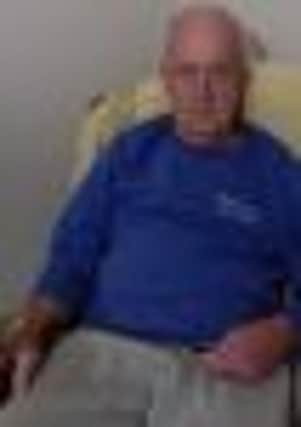Mini-stroke victim hits out at care


Mr David Miller (68) who had a major stroke 20 years ago which forced him to give up work, said he knew the signs after he became ill and realised he had suffered a mini-stroke – a Transient Ischemic Attack (TIA) – last month.
He visited his GP on July 7th, but did not receive an appointment to see a specialist stroke doctor at Burnley General Hospital until August 4th, a month after he became ill.
Advertisement
Hide AdAdvertisement
Hide AdMeanwhile his worried wife Rosemary (68) called NHS Direct who told the couple, of Keighley Road, Colne, to urgently attend the nearest accident and emergency department. Mrs Miller drove her husband to Airedale Hospital where he was assessed and admitted for two weeks. He is slowly recovering but is still receiving speech therapy and physiotherapy.
Mr Miller said: “I realised something was wrong. When my wife phoned NHS Direct they said my doctor should’ve rung an ambulance and taken me straight to hospital.”
His wife added: “The strokes have affected him badly. He is still getting mixed up with his words. I can’t believe it. He has been let down by the system. It’s not good enough and now my husband is suffering for it.”
The Express recently revealed how hospital staff said they had met strict new targets for treating mini-strokes for the first time. Under new government guidelines at least 60% of high-risk patients should receive full assessment for TIA within 24 hours of a referral by their GP. In June health bosses from East Lancashire Hospitals NHS Trust said 70% of patients had been seen within that time.
Advertisement
Hide AdAdvertisement
Hide AdTIA is caused by a temporary loss of blood to the brain or spinal cord and is considered to be a warning a patient is at risk of a stroke.
Dr Mike Ions, lead GP at Pendle View Medical Centre, said: “I will be conducting an investigation into Mr and Mrs Miller’s concerns, and will be contacting them to discuss the matter. However, due to patient confidentiality, am unable to disclose further information.”
Meg Davey, business manager for medicine for older people, rehabilitation, stroke and neurology at East Lancashire Hospitals NHS Trust, said: “The Trust provides a number of pathways for TIA and stroke care. Urgent outpatient referrals are defined under our operating contracts as patients to be seen within four to six weeks. GPs can also refer patients under the ‘two-week rule’ for very urgent cases, and a special path for those with very high-risk TIA is available too, under which we provide full assessment within 24 hours.”